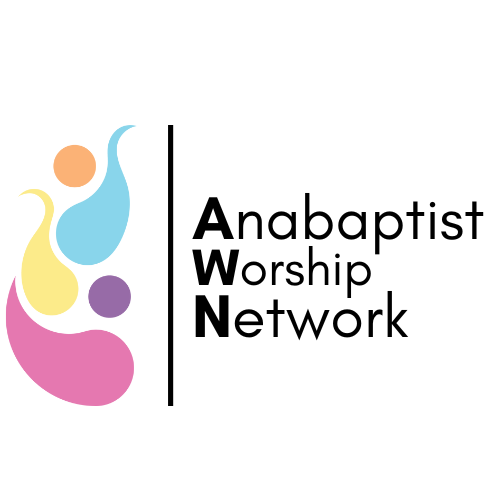Engaging with songs of “the Other”
By Matthew Boutda
Through the resurgence of dialogue and lament with colleagues over the last few weeks around Black Lives Matter and its impact, mainline churches are seeking ways to engage in meaningful action with their congregations. One of the ways to do this is through intentionally exploring antiracist worship practices.
I am a Laotian-Canadian who grew up in a Lao ethnic Mennonite Church in Toronto, Ontario and have served in multiple mainline congregations as a song leader. I understand that this is a challenging process for many congregations, and as no expert, I believe there is also no one “right” way.
“Antiracist - as a person or organization that supports racial equality.” - How to be an Antiracist by Ibram Kendi
How much of our theological inheritance are we prepared to put on the table in our engagements?
Our commitment to racial justice includes building genuine and authentic relationships with our neighbours. That means engaging in interfaith dialogue and speaking out against violence and discrimination rooted in racial and religious bigotry. It means having the courage to talk about racism and white privilege in our church and in our society. This can be applied to worship practices, specifically how we share non-Western songs liturgically. Congregational singing can be liberating by fostering and opening up to traditions outside of North America and those marginalized here in North America.
One must be aware of the fact that Western music is brought with ingrained racism. The fact that “global” music is not in the Western canon already puts a superior judgement on Western music and “others” everything else. We often tend to use non-Western music as “spice” or flavor, which is racist in itself.
Furthermore, the prioritization of Western hymnody impedes the full expression of diverse and complex cultural identities, which are part of the image of God. In fact, the authority given to the inherited canons of Western European hymnody in congregational singing still thwarts embodied congregational participation.
What is a congregations’ purpose for using non-Western songs?
Congregational singing can be both embodied and liberating, nourishing fuller expressions of complex cultural identities in present-day churches in North America.
A liberating praxis of congregational singing both challenges the suspicion against singing as embodied action and aims to reclaim it from the domination of pervasive Western European Anglo North Atlantic cultures in liturgy. These messy, intercultural, often conflictual and socially contested realities are always present when we sing. They also shape and condition the way people sing and why they sing.
Michael Hawn argues for an “abundant sung faith” which broadens theological perspectives and is undergirded by ethical approaches in song leading. However, there remains a tendency to overly-justify an expansion of hymnic canons to include non-Western songs. This includes romantically arguing that praying with particular “others” through their songs is sufficient reason to do it, or that by simply singing non-Western music, the imperial theologies of Anglo-North Atlantic mainline churches can be transformed.
In some cases, the move to incorporate non-Western songs continues to be tied to outdated notions of “mission”, which risks reinforcing and entrenching patronizing imperial/colonial theologies. In other words, the colonial paradigm of the mission driven “centre” still holds, the “shift from centre to spectrum” (Michael Hawn) is not made, and a tokenistic use of music from the Global South/Majority World prevails.
Church leaders should consider reflecting the intentionality behind decisions to include a piece of music in their services. For example, non-Western songs could be chosen to emphasize the liturgical and theological themes of the service (not as an exotic flavor or “spice”). In regards to song leading, a model of sharing power would be sought by giving over song leadership to people from the community of the song or by sharing power through co-leadership. Therefore, encourage song leadership from and with marginalized peoples.
How Leading Non-Western Songs In Worship Can Go Awry:
When leadership is not shared even though the community has people from the representative culture
When the context of the community is not considered; identities of people are not taken into account and their agencies are therefore not affirmed.
When there is no context given for any of the songs. The songs can be misinterpreted and misappropriated. Though the song leader likely intended the opposite, they can (re)colonize the songs.
Nestor Medina calls this leadership style “cultural poaching” because it keeps power differentials intact and inflicts cultural epistemic violence. This could be that a song leader is relying on their credentials as a “global” song leader to assume or build trust even though there is little accountability to the people in the room or the peoples of the songs. The distance between the “west and the rest” can accentuate, and the opportunity to invite differences into an intercultural engagement can be lost. This leadership style illustrates how an entrenchment in cultural privilege precludes the possibilities of creating a more enriching intercultural space.
How can congregations be more aware and respectful when engaging with non-Western songs?:
Consider who is in the room - congregational leaders move us from a singular state of isolated personhood to a collective state of belonging. An explicit welcoming of the people in the room affirms identities and draws out peoples’ agencies. As people are enabled to sing with each other and from their lived experience, the singing becomes a concrete expression of theology.
Sharing contexts of the songs, including information about their creators and the community from which they arose. This task is especially important when a song comes from the oral tradition and/or from a marginalized community where the origin may be more easily forgotten, obscured, sanitized, or even erased.
A lack of attention to power dynamics and accountability can silence particular voices, especially by assuming to sing or speak on their behalf. Partnering in leadership, encourages the idea that the liturgy is rooted in, and rose up from the community, and marginalized and radicalized voices can be given priority. When singing non-Western music, we are not just learning to sing new songs from other places. We are learning to pray in new ways, and in solidarity with others who embody those sung prayers. By working towards a de-colonizing (and anti-racist) stance, issues of power that are inherent in song leadership are interrogated - an action that is especially crucial when a dominant cultural leader leads music from marginalized communities. People can then accompany each other and together experience an eruption of the Divine in singing, experiencing the liberating action of the Holy Spirit. Rooted in relationship and community, in the everyday life of the people, liberating song-leading invites nothing less than a profound theological re-orientation. Uplifting non-Western songs liturgically in a respectful way unsettles the status quo and has the potential to incite the stirrings of ecclesial transformation.
Matthew Boutda is the Director of Music at Leaside United Church in Toronto, Ontario, where he oversees a rich choral music program, and plays the organ. He is also the Assistant Conductor of Pax Christi Chorale, a semi-professional oratorio choir. As a recent Master of Sacred Music graduate from Emmanuel College, University of Toronto, Matthew is pursuing personal ethnographic research in the liturgical praxis of Laotian Mennonite congregations in Canada.

